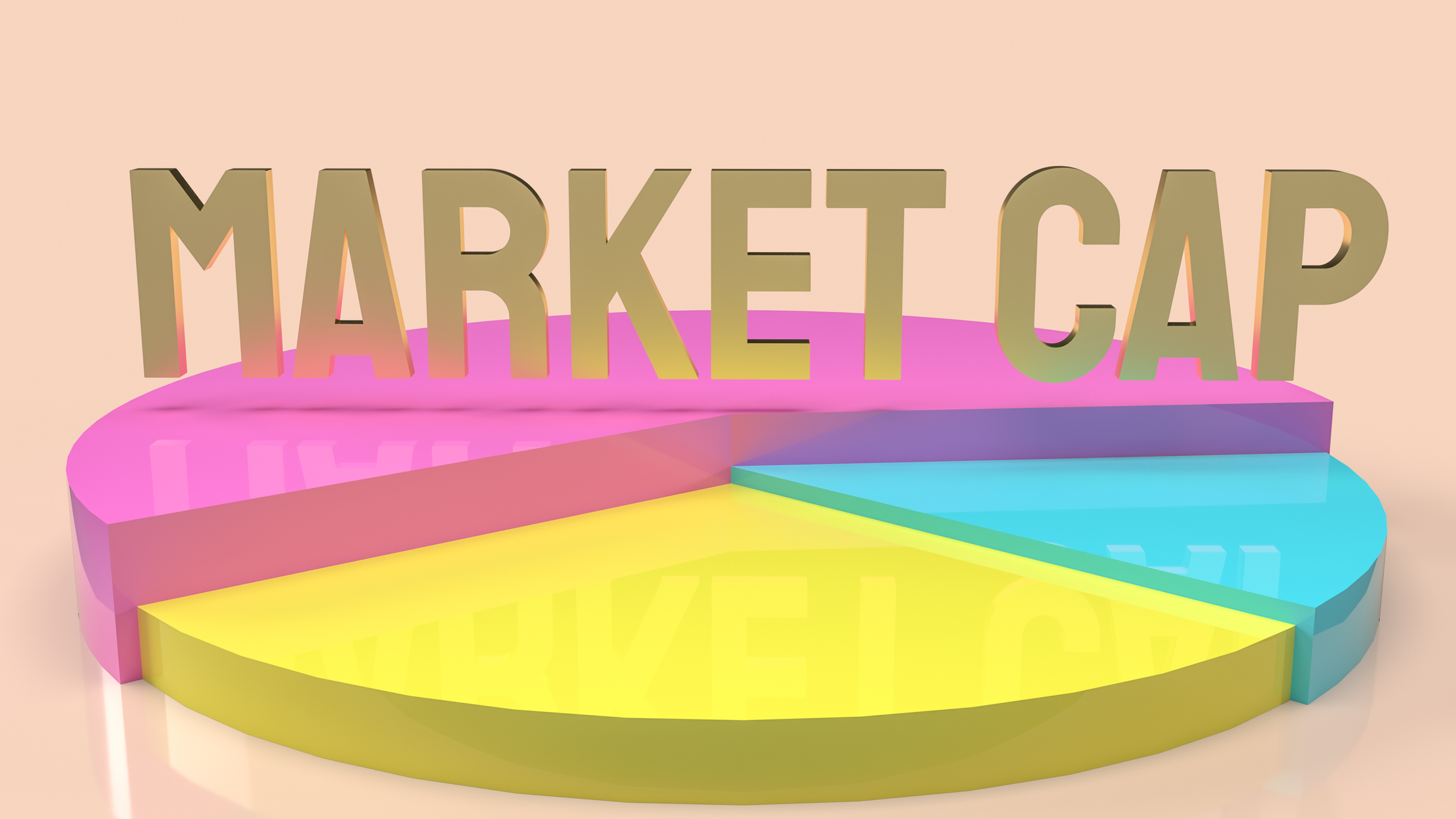What Is Market Cap?
What is market cap? Here we discuss the basics, significance and related issues of the metric that is often used to gauge a company's size and value.


Profit and prosper with the best of Kiplinger's advice on investing, taxes, retirement, personal finance and much more. Delivered daily. Enter your email in the box and click Sign Me Up.
You are now subscribed
Your newsletter sign-up was successful
Want to add more newsletters?

Delivered daily
Kiplinger Today
Profit and prosper with the best of Kiplinger's advice on investing, taxes, retirement, personal finance and much more delivered daily. Smart money moves start here.

Sent five days a week
Kiplinger A Step Ahead
Get practical help to make better financial decisions in your everyday life, from spending to savings on top deals.

Delivered daily
Kiplinger Closing Bell
Get today's biggest financial and investing headlines delivered to your inbox every day the U.S. stock market is open.

Sent twice a week
Kiplinger Adviser Intel
Financial pros across the country share best practices and fresh tactics to preserve and grow your wealth.

Delivered weekly
Kiplinger Tax Tips
Trim your federal and state tax bills with practical tax-planning and tax-cutting strategies.

Sent twice a week
Kiplinger Retirement Tips
Your twice-a-week guide to planning and enjoying a financially secure and richly rewarding retirement

Sent bimonthly.
Kiplinger Adviser Angle
Insights for advisers, wealth managers and other financial professionals.

Sent twice a week
Kiplinger Investing Weekly
Your twice-a-week roundup of promising stocks, funds, companies and industries you should consider, ones you should avoid, and why.

Sent weekly for six weeks
Kiplinger Invest for Retirement
Your step-by-step six-part series on how to invest for retirement, from devising a successful strategy to exactly which investments to choose.
One of the most common terms bandied about among investors is "market cap," which is also known as market capitalization or market value. But what is market cap?
In its most basic definition, market cap is equal to what a company is worth at any particular stock price.
To calculate a company's market cap, multiply the number of shares that are trading in the market and/or have been issued by the stock's current share price.
From just $107.88 $24.99 for Kiplinger Personal Finance
Become a smarter, better informed investor. Subscribe from just $107.88 $24.99, plus get up to 4 Special Issues

Sign up for Kiplinger’s Free Newsletters
Profit and prosper with the best of expert advice on investing, taxes, retirement, personal finance and more - straight to your e-mail.
Profit and prosper with the best of expert advice - straight to your e-mail.
So, for example, if a company has 10 million shares that are issued and outstanding (i.e., are not being held by the company as treasury stock) and the stock price is $10 per share, its market cap is $100 million. At $100 per share, its market cap is $1 billion.
What is market cap and what does it tell you?
Arguably, the biggest thing market cap tells you is what the stock market thinks a company is worth based on its price and the number of shares outstanding. This is also used to categorize its stock as mega cap, large cap, mid cap, small cap or micro cap. And knowing which bucket a stock falls into can help an investor determine a portion of the risk involved with owning those particular shares.
For instance, large- and mega-cap companies, or those with market caps that are typically above $10 billion and $200 billion, respectively, include many blue chip stocks that are considered some of the best long-term investments. This is because the firms are typically well-established with sound fundamentals.
Small-cap stocks, on the other hand, are companies with market caps that usually fall within the $250 million to $2 billion range. The share prices of these firms tend to be a bit more volatile than their larger-cap peers.
How is market cap calculated?
Most financial websites will tell you a company's market cap. However, even casual readers have probably noticed that not all sites have the same market cap number.
This is because they typically use diverse measures of a company's shares. For example, a precise market cap calculation cannot use the share count used in "earnings per share," or EPS. That is because this measure uses an average share count during the past quarter or year.
The most precise way to measure share count is to use the number of shares outstanding on the very first page of a company's most recent 10-Q filing. This can be found in the Securities and Exchange Commission's (SEC) EDGAR database.
A complicated market cap calculation, explained
CrowdStrike (CRWD) recently filed its 10-Q for the quarter ending July 2023. Note that on the bottom of the first page (before the table of contents) there is a sentence that reads, "As of August 15, 2023, the number of shares of the registrant's Class A common stock outstanding was 226,056,362, and the number of shares of the registrant's Class B common stock outstanding was 12,731,839."
This number is higher than the shares outstanding as of July 31, when CrowdStrike had 226,043,000 Class A shares and 12,732,000 Class B shares (as seen on its balance sheet).
So, between July 31 and August 15, the number of Class A shares grew by about 13,300. There were more Class B shares as well. This increase is likely due to options and restricted stock that have been exercised from shares issued to employees and consultants. Changes in the number of shares outstanding can also be due to stock buybacks, although in this case that is unlikely given that stock repurchases reduce shares outstanding.
So, in order to calculate the most precise market cap number, we add the number of Class A and Class B shares found in the August 15 10-Q and multiply that by CRWD's current share price ($163.89 as of the September 20 close). This works out to a market cap of $39.1 billion.
Note, that we have to add the most recent Class A and Class B shares, even though only the Class A shares are listed and trading on the Nasdaq. This is a common situation with tech stocks, including companies like Meta Platforms (META) and Alphabet (GOOGL). These firms have non-trading super-voting shares that are issued and outstanding, but they don't trade on the stock exchanges.
The bottom line on market cap
The bottom line is that the concept of market cap is useful for market analysts, traders and investors. It shows us exactly what the market thinks a company is worth based on its present trading price, and can help determine the level of risk involved with buying shares.
Related content
Profit and prosper with the best of Kiplinger's advice on investing, taxes, retirement, personal finance and much more. Delivered daily. Enter your email in the box and click Sign Me Up.

Mark R. Hake, CFA, is a Chartered Financial Analyst and entrepreneur. He has been writing on stocks for over six years and has also owned his own investment management and research firms focused on U.S. and international value stocks, for over 10 years. In addition, he worked on the buy side for investment firms, hedge funds, and investment divisions of insurance companies for the past 36 years. Lately, he is also working as Chief Strategy Officer for a tech start-up company, Foldstar Inc, based in Princeton, New Jersey.
-
 Dow Loses 821 Points to Open Nvidia Week: Stock Market Today
Dow Loses 821 Points to Open Nvidia Week: Stock Market TodayU.S. stock market indexes reflect global uncertainty about artificial intelligence and Trump administration trade policy.
-
 Nvidia Earnings: Live Updates and Commentary February 2026
Nvidia Earnings: Live Updates and Commentary February 2026Nvidia's earnings event is just days away and Wall Street's attention is zeroed in on the AI bellwether's fourth-quarter results.
-
 I Thought My Retirement Was Set — Until I Answered These 3 Questions
I Thought My Retirement Was Set — Until I Answered These 3 QuestionsI'm a retirement writer. Three deceptively simple questions helped me focus my retirement and life priorities.
-
 AI Unwind Takes 2% Off the Nasdaq: Stock Market Today
AI Unwind Takes 2% Off the Nasdaq: Stock Market TodayMarkets are paying more and more attention to hyperscalers' plans to spend more and more money on artificial intelligence.
-
 Stocks Sink With Alphabet, Bitcoin: Stock Market Today
Stocks Sink With Alphabet, Bitcoin: Stock Market TodayA dismal round of jobs data did little to lift sentiment on Thursday.
-
 Nasdaq Drops 172 Points on MSFT AI Spend: Stock Market Today
Nasdaq Drops 172 Points on MSFT AI Spend: Stock Market TodayMicrosoft, Meta Platforms and a mid-cap energy stock have a lot to say about the state of the AI revolution today.
-
 S&P 500 Tops 7,000, Fed Pauses Rate Cuts: Stock Market Today
S&P 500 Tops 7,000, Fed Pauses Rate Cuts: Stock Market TodayInvestors, traders and speculators will probably have to wait until after Jerome Powell steps down for the next Fed rate cut.
-
 S&P 500 Hits New High Before Big Tech Earnings, Fed: Stock Market Today
S&P 500 Hits New High Before Big Tech Earnings, Fed: Stock Market TodayThe tech-heavy Nasdaq also shone in Tuesday's session, while UnitedHealth dragged on the blue-chip Dow Jones Industrial Average.
-
 Dow Rises 313 Points to Begin a Big Week: Stock Market Today
Dow Rises 313 Points to Begin a Big Week: Stock Market TodayThe S&P 500 is within 50 points of crossing 7,000 for the first time, and Papa Dow is lurking just below its own new all-time high.
-
 Nasdaq Leads Ahead of Big Tech Earnings: Stock Market Today
Nasdaq Leads Ahead of Big Tech Earnings: Stock Market TodayPresident Donald Trump is making markets move based on personal and political as well as financial and economic priorities.
-
 11 Stock Picks Beyond the Magnificent 7
11 Stock Picks Beyond the Magnificent 7With my Mag-7-Plus strategy, you can own the mega caps individually or in ETFs and add in some smaller tech stocks to benefit from AI and other innovations.